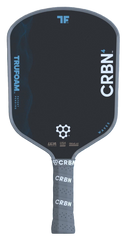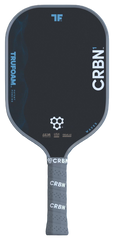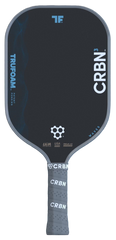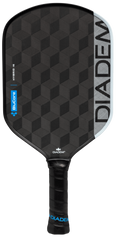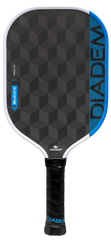Pickleball has quickly become a popular and enjoyable sport, but its competitive side comes with challenges that go beyond just being physically skilled.
If you want to take your game to the next level, understanding the mental aspect is essential. This article dives into the basics of pickleball, covering the rules and gameplay, while also highlighting how important mental resilience is for players like you.
You’ll find practical strategies to boost your focus, tackle those pesky mental hurdles, and turn mistakes into valuable growth opportunities, making sure you’re fully prepared for your next match!
The Mental Game of Pickleball
The mental game of pickleball is key to boosting your performance on the court. It doesn’t just sharpen your focus and concentration; it also shapes your overall strategy.
Understanding this can give you that competitive edge you need to tackle the challenges of the game and make better decisions. By weaving in mindfulness and sports psychology principles into your routine, you can optimize your mental state and build resilience against distractions and anxiety.
This holistic approach to mental toughness will set you up to crush both your short-term and long-term goals in your pickleball journey.
What is Pickleball?
Pickleball is a fast-paced and engaging sport that mixes elements of tennis, badminton, and table tennis, so it’s a blast for players of all ages and skill levels.
It all started back in the mid-1960s on Bainbridge Island, Washington, when someone wanted to create a fun, family-friendly activity. In a typical game, you’ll use paddles to hit a lightweight plastic ball over a net onto a court that’s 20 by 44 feet for doubles matches.
The rules are pretty straightforward: serve underhand, and make sure the ball lands in the diagonal service area. The rally goes on until one side misses returning the ball or commits a fault.
To get started, all you really need are some lightweight paddles and a net that stands 36 inches high at the ends. With its focus on strategy and skill, this sport has taken off, attracting new fans all over the world.
How is Pickleball Played?
Pickleball is played on a rectangular court divided by a net, and you can enjoy it in singles or doubles matches. You’ll use paddles to hit a perforated plastic ball over the net.
Your goal is to score points by making sure your opponents can’t return the ball within the court’s boundaries. Each match kicks off with a serve that needs to land in the diagonal service box, and then you dive into a unique rally style that includes both groundstrokes and volleys.
Points are only awarded to the serving side, and games usually go to 11, 15, or even 21 points, but you need to have at least a two-point lead to win. Regarding serving, you might want to mix up the spin and placement of the ball.
Rallying effectively means having quick reflexes and positioning yourself just right to take advantage of your opponents’ mistakes. So, honing both your offensive and defensive skills throughout the game is essential!
What are the Rules of Pickleball?
The rules of pickleball are your best friends when it comes to ensuring fair play and keeping that competitive spirit alive. They cover everything from serving and scoring to those pesky faults.
Understanding these guidelines is super important, no matter your skill level, because they dictate how the game flows and help maintain the integrity of competition. If you're new to the game, you definitely want to get familiar with the basics, like the two-bounce rule—this means the ball has to bounce once on each side before anyone can start volleying.
Keep an eye out for common faults, too, like foot faults, which happen when you step over the service line while serving, and violations in the non-volley zone, often called the kitchen rule. Plus, knowing the ins and outs of the scoring system—like the difference between rally scoring and traditional formats—can really up your game, letting you make smarter decisions when the match gets intense.
Why is the Mental Game Important in Pickleball?
The mental game is crucial in pickleball, and it can really impact your focus during matches, your ability to manage pressure, and your confidence in your skills.
Your mental resilience can often be the deciding factor in a close game where every point is vital. Successful players like you regularly use strategies to boost concentration, helping you block out distractions and zero in on your performance.
You also learn how to handle the pressures that come with competitive play, using techniques like positive self-talk and visualization to keep anxiety in check.
This mental strength builds your confidence, allowing you to trust your training and abilities, which ultimately leads to better performance on the court.
How to Stay Focused in Pickleball?
Staying focused in pickleball is crucial for boosting your performance and pulling off effective strategies during matches. You can achieve this by using a variety of techniques that revolve around mindfulness and mental conditioning.
1. Practice Mindfulness
Practicing mindfulness in pickleball can really help you maintain awareness and concentration, allowing you to stay present during each point and reduce those pesky distractions that might mess with your performance.
By weaving mindfulness practices like meditation, focused breathing exercises, and some gentle relaxation techniques into your training routine, you can cultivate a deeper mental clarity that directly improves your gameplay. Meditation can help you clear your mind, fostering that calm state that leads to sharper decision-making on the court. Breathing exercises are great for helping you regulate your heart rate and emotions when the pressure's on, ensuring you stay composed and focused. Plus, those relaxation techniques are fantastic for recovery, reducing anxiety and physical tension, which in turn boosts your overall performance during games.
2. Use Positive Self-Talk
Using positive self-talk can really boost your confidence and emotional resilience, helping you tackle challenges on the pickleball court with a winning mindset.
This little inner dialogue of yours not only lifts your self-esteem but also encourages a strategic approach that’s essential for peak performance. For example, when you're up against competitive opponents, telling yourself things like "I can make amazing shots" or "I tackle every challenge with enthusiasm" can completely change how you feel, turning anxiety into excitement.
Pairing techniques like visualization with those affirmations helps build a mental framework that supports not just your skill execution but also your emotional stability. By focusing your self-talk on growth and accomplishment, you can develop a rock-solid belief in your abilities, which is key when the pressure is on.
3. Visualize Success
Visualization is a powerful technique that lets you mentally rehearse your performance in pickleball. It helps you envision success and set both short-term and long-term goals for yourself.
By tapping into this cognitive tool, you can create vivid mental images of yourself nailing those perfect serves, anticipating your opponent's next move, and celebrating those hard-earned victories. Picture yourself on the court, visualizing an upcoming match against a tough competitor. You can rehearse not just your serves, but also your footwork and positioning during those critical game points.
This method of mental rehearsal is crucial because it bridges the gap between preparation and actual performance, often leading to better outcomes. You might find that adding visualization to your routine enhances your confidence, reduces anxiety, and ultimately boosts your overall performance when it matters most.
4. Control Your Breathing
Controlling your breathing is key to managing stress and keeping your concentration sharp during those intense pickleball matches. It helps activate relaxation techniques and reduces that pesky performance anxiety.
By diving into deep breathing exercises, you can encourage your body to transition from a state of tension to one of calmness. Not only do these practices boost your mental clarity, but they also help your gameplay flow much more smoothly. You might find it helpful to include rhythmic breathing or the 4-7-8 method in your pre-game routine. Just focus on inhaling for four counts, holding it for seven, and exhaling for eight.
This mindful control over your breath can be a powerful tool for managing stress. It allows you to harness your concentration and maintain peak performance when it really counts.
5. Stay in the Present Moment
Staying in the present moment is key for you to maintain focus and situational awareness during your pickleball matches. It helps you react effectively to your opponent's moves without letting past mistakes or future outcomes distract you.
Embracing a mindful approach can really boost your performance on the court. Techniques like deep breathing, grounding exercises, and visualization can help you cultivate a greater sense of awareness. By centering your thoughts on the game, you can drown out distractions and sharpen your decision-making skills. Make it a habit to check in with your surroundings during play; this will encourage a more responsive and alert mindset.
Integrating these strategies creates a mental environment where clarity flourishes. This makes it easier for you to execute plays and maintain that unshakeable focus throughout the match.
What are the Common Mental Challenges in Pickleball?
You might run into some common mental challenges while playing pickleball that can really impact your game. These include dealing with mistakes, managing pressure, and overcoming doubts and performance anxiety.
1. Dealing with Mistakes
Dealing with mistakes effectively is crucial for keeping your emotional control and resilience intact on the pickleball court. It helps you learn from your errors instead of getting stuck on them.
When you look at each misstep as a chance to grow, you not only sharpen your skills but also build a positive mindset. Using strategies like self-reflection and seeking constructive feedback can really help you turn setbacks into stepping stones for improvement.
By staying composed and understanding that mistakes are just part of the game, you can better handle the emotional rollercoaster that comes with competitive play. This approach builds resilience, allowing you to bounce back stronger, tweak your strategies, and reinforce the idea that every challenge can lead to even greater success in your pickleball journey.
2. Managing Pressure
Managing pressure in pickleball is crucial for your best performance. You need effective anxiety management techniques to keep your focus sharp, especially when the competition heats up.
By building a toolkit of strategies, you can learn to channel the adrenaline that comes with high-stakes matches instead of letting it throw you off your game. Techniques like deep breathing exercises, visualizing your successful plays, and sticking to pre-match routines can really help lower those anxiety levels. Plus, creating a positive self-talk mantra can boost your confidence right before and during the game.
Finding the right balance between mental resilience and tactical awareness will help you navigate competitive pressure. This combination translates into better decision-making and execution of your skills when it matters most.
3. Overcoming Doubt and Fear
Overcoming doubt and fear is a crucial part of the mental game in pickleball, and it can really impact your confidence and self-efficacy on the court.
When you recognize how important it is to tackle those negative emotions, you open the door to a whole toolbox of mental strategies that can help boost your confidence and resilience. Techniques like visualization, where you picture yourself achieving successful outcomes, can reshape your mindset and encourage you to focus on positive reinforcement instead of getting caught up in self-criticism.
By cultivating mental clarity through mindfulness practices, you can center your thoughts, reduce distractions, and enhance your performance. Embracing these strategies allows you to not only tackle your fears head-on but also give the power tos you, leading to more decisive actions and a stronger competitive mindset.
How to Overcome Mental Challenges in Pickleball?
Overcoming mental challenges in pickleball takes a mix of effective strategies and a good dose of resilience. This combination can really help you boost your focus and performance during matches.
1. Reframe Mistakes as Learning Opportunities
Reframing your mistakes as learning opportunities is key to developing a growth mindset and boosting your self-awareness in pickleball.
When you look at your errors with curiosity instead of judgment, you set yourself up for better performance and resilience. Instead of feeling defeated or discouraged by a misstep, take a moment to examine what went wrong; you might uncover valuable insights that you would have missed otherwise. This shift in perspective helps you embrace your imperfections as stepping stones toward mastery, ultimately leading to greater confidence and adaptability on the court.
By cultivating self-awareness and recognizing the lessons in each mistake, you can enhance your skills and have a more fulfilling experience in the game.
2. Focus on the Process, Not the Outcome
Focusing on the process instead of just the outcome can really boost your performance in pickleball. It helps you cultivate a mindset centered around improvement and consistency.
When you adopt this approach, you can fully immerse yourself in each play, refining your skills and sharpening your strategies without getting caught up in whether you win or lose. By prioritizing process-oriented thinking, you’ll find that your concentration levels soar, leading to a more relaxed and confident vibe on the court.
The pressures of competition can create anxiety, but when you shift your focus to executing specific techniques and simply enjoying the game, you might notice your performance flourishing naturally. Embracing this mindset not only enhances your skills but also makes the game a lot more enjoyable and satisfying.
3. Use Visualization and Positive Affirmations
Using visualization techniques along with positive affirmations can really amp up your confidence and strengthen your mindset in pickleball.
By weaving these powerful mental strategies into your training routine, you can build a stronger foundation for success. For example, when you visualize successful serves or strategic plays, you’re mentally rehearsing and preparing for different scenarios on the court. This not only sharpens your focus but also helps reduce anxiety, making it easier to perform when the pressure is on.
Simultaneously, repeating positive affirmations boosts your belief in your abilities and helps you cultivate a resilient mindset. Together, these two techniques are essential tools for mental conditioning, paving the way for improved performance and greater consistency during your matches.
4. Develop a Pre-Game Routine
Developing a pre-game routine is key for getting your head in the game when it comes to pickleball. It sets the stage for focus and helps you perform consistently during matches.
By creating a structured sequence of activities before you hit the court, you can boost your mental conditioning and block out distractions. This routine could include visualization techniques, where you picture yourself nailing those shots, along with some breathing exercises to help keep your heart rate steady and ease any tension.
Don’t forget to add in specific warm-up drills to get both your body and mind ready for action. Sticking to this routine not only builds your confidence but also amps up your alertness, which can really elevate your performance during those crucial moments on the court.
Frequently Asked Questions
1. What is the mental game of pickleball?
The mental game of pickleball refers to the psychological aspect of the sport, which includes strategies for staying focused, controlling emotions, and maintaining a positive mindset while playing.
2. Why is staying focused important in pickleball?
Staying focused is crucial in pickleball because it allows you to react quickly to your opponent's shots and make split-second decisions. It also helps you to execute your shots accurately and effectively.
3. What are some tips for staying focused during a pickleball match?
Some tips for staying focused in pickleball include taking deep breaths, using positive self-talk, visualizing successful shots, and focusing on the present moment rather than dwelling on mistakes.
4. How can I control my emotions while playing pickleball?
To control your emotions during a pickleball match, practice deep breathing, take breaks when needed, and remind yourself to stay calm and focused. It can also be helpful to have a pre-game routine that helps you get into a calm and focused mindset.
5. What should I do if I find myself getting distracted during a pickleball game?
If you find yourself getting distracted during a pickleball game, take a moment to refocus on your breathing and use positive self-talk to regain your concentration. You can also try refocusing your attention on the present moment and your game strategy.
6. How can the mental game of pickleball improve my overall performance?
The mental game of pickleball can improve your overall performance by helping you stay focused, control your emotions, and maintain a positive mindset. It can also give you a competitive edge by helping you make better decisions and stay calm under pressure.
